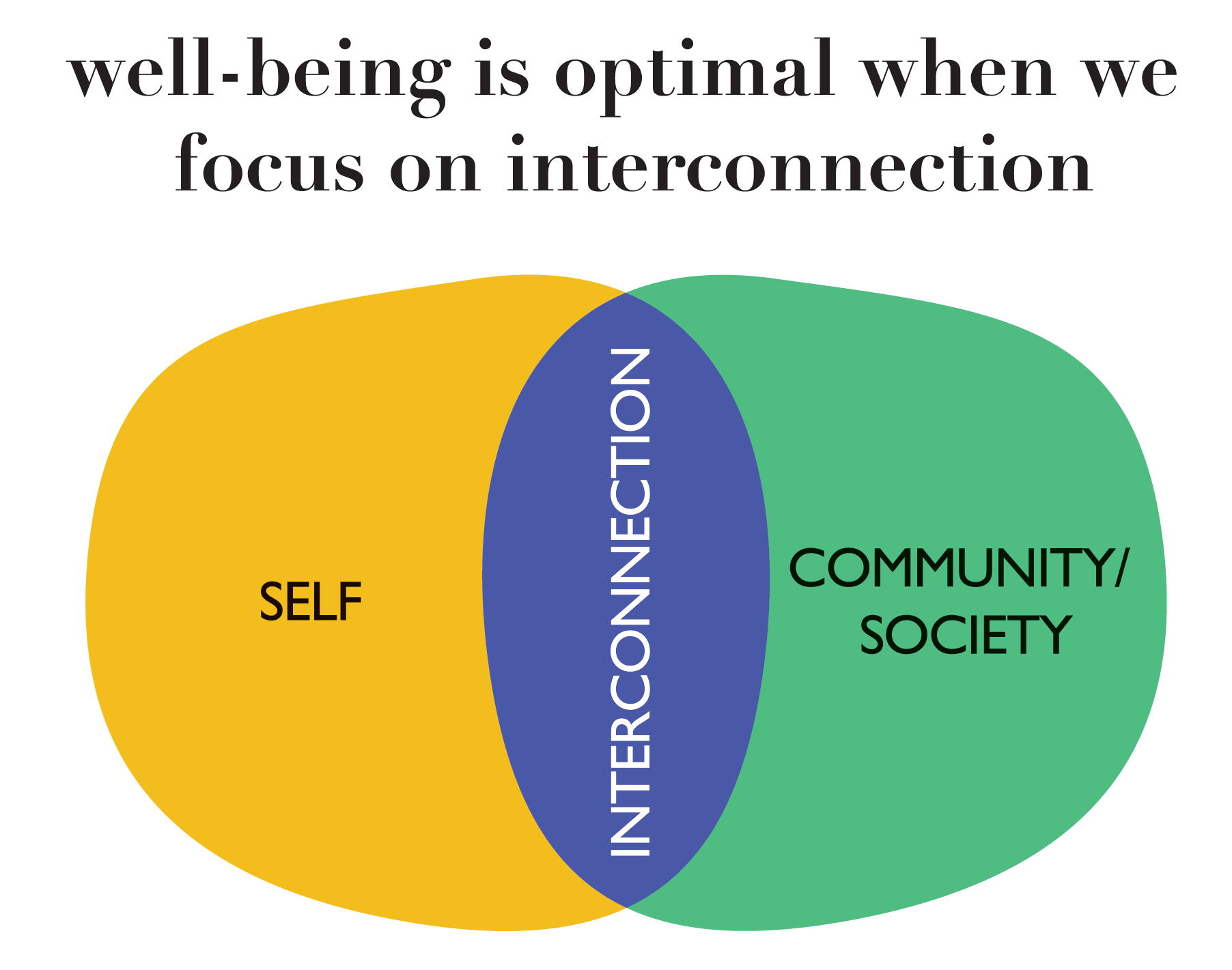Interconnection, Relationships, and the Work of Peer Support
“Humankind has not woven the web of life. We are but one thread within it. Whatever we do to the web, we do to ourselves. All things are bound together. All things connect.”
~Chief Seattle
Hyper-Individualism
One of the biggest societal issues of our time is the effect of hyper-individualism on our communities. One might venture to say that this has been a steady problem stemming from a colonization mindset.
Yourdictionary.com defines hyper-individualism as “A tendency for people to act in a highly individual way, without regard to society.”
In essence, hyper-individualism is an extreme form of individualism, and it means that someone is so focussed on self they have very little regard for others. Some examples of hyper-individualism are:
- A focus only on the success and wealth of an individual, rather than considering what they can contribute to society
- A focus only on personal rights, without considering what is important for society
- Underfunding of public transportation and a primary focus on individual car ownership (note that hyper-individualism is closely connected to capitalism)
- Avoiding asking for help, even when help is needed, for fear of being seen as weak, dependent, or incompetent (note that hyper-individualism is closely connected to ableism and sexism)
- Excessively over-using non-renewable resources with no regard for the impact on other people and the natural world (note that hyper-individualism is closely connected to colonialism)
- Driving dangerously (running a stop sign, speeding, texting, or driving while intoxicated) with no regard for others’ safety
- Any attitude or behaviour that avoids addressing systemic issues (e.g. racism, classism or stigma) in favour of the comfort of individuals from the dominant culture who benefit from these power imbalances
This hyper-individualistic worldview can keep us separated and disconnected from one another, which ultimately leads to loneliness and decreased compassion. For those who are struggling with mental health and/or substance use issues, a hyper-individualistic mindset can drive them deeper into despair and aloneness.
It’s important to note here that we are not saying individualism is all bad. A defined sense of self, self-awareness, self-determination, autonomy over one’s choices, awareness of one’s strengths, and clear boundaries combined with personal responsibility are all very important for our well-being. A well-defined sense of self is valuable and can support interconnection.

Interconnection is about balancing the needs of self with acknowledgment that we are also a part of something greater than ourselves. What we choose to do individually has an impact on the whole. We can only flourish when we feel a sense of belonging and connection with others. Community and connection is important to our well-being just as eating nutrient-rich foods benefits our bodies and minds. None of us can have a healthy existence living fully isolated.
This training comes from the perspective that supporting the individual while resisting the cultural pull toward hyper-individualism is very important.
Relationships and Interconnection
When we have relationships with others, we become more fully who we are meant to be. As therapist Esther Perel says, “we are shaped by our relationships.” (podcast “Feel Better, Live More with Dr. Rangan, episode #119, 24:24) The dynamic connection between two people creates something amazing. We are changed by each of our relationships.
Think of relationships like an electrical circuit. Power flows through a source to an object, and back to the source. The power has to flow through both the source and the object. Electricity requires a flow back and forth, otherwise it will not work.
Peer support is about relationship and connection. This means breaking away from the dominant mindset of hyper-individualism, and instead grounding our work in the core beliefs of interconnection and interdependence.
Interconnection is the mindset that everything is connected. It supports the intrinsic value of all life. We are all connected to each other–our communities, our nations, and the very earth on which we live.
Interdependence recognizes that all human beings need community and belonging. While it is certainly a goal to be able to take care of oneself, and create self-nourishment practices, full independence encourages isolation and loneliness. We need other people in our lives.
Sharing our stories with people we trust, which is a practice in vulnerability, is a powerful antidote to shame. When we choose to share something that we have otherwise kept bottled up–festering, we create an opportunity for an empathetic connection. When we share with others, we often realize that we are not alone.
“If we can share our story with someone who responds with empathy and understanding, shame can’t survive.” ~Brené Brown (Daring Greatly, 2015)
“Shame is always easier to handle if you have someone to share it with.” ~Craig Thompson (Blankets, 2019)
In the research article Strategic Storytelling: An Exploration of the Professional Practices of Mental Health Peer Providers, (Mancini, 2019) shares about the importance of storytelling in peer support work.
The data from this study suggest that peers represent more than supportive adjuncts to nonpeer clinical treatment providers. They are distinct, legitimate professionals who utilize a range of complex clinical and narrative skills to help others. Making oneself vulnerable by revealing a personal story that involves shame, victimization, or dangerous behaviors to help another is an act of courage.…they have decided to remain engaged with their past experiences to extend the opportunity of survivorship and recovery to others (Frank, 2005). Peer support is an amazing opportunity to nurture the development of interconnection and interdependence mindsets both in ourselves and with the people we support.
Media Attribution
- Interconnection diagram by Jeseye Tanner is licensed under a CC BY 4.0 licence.

